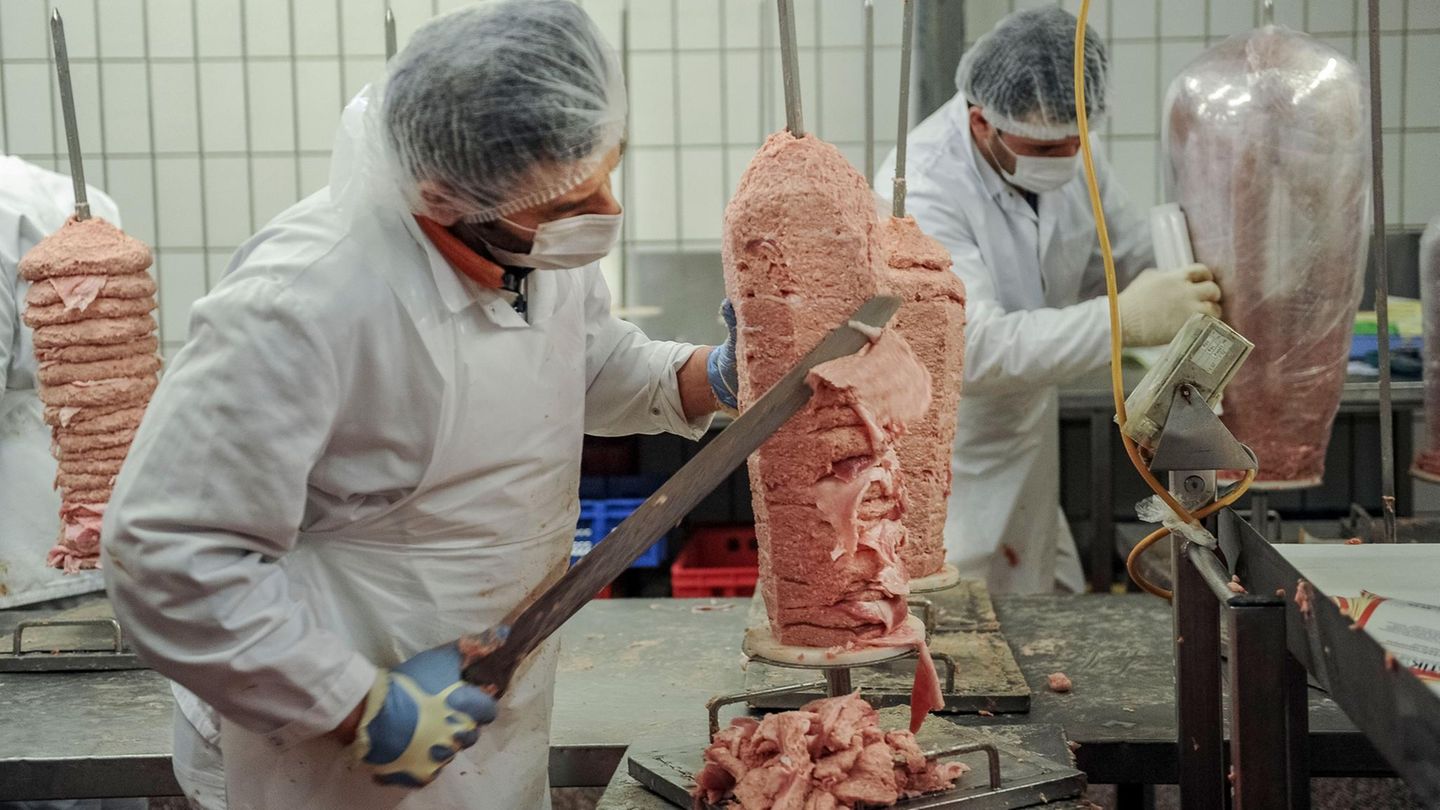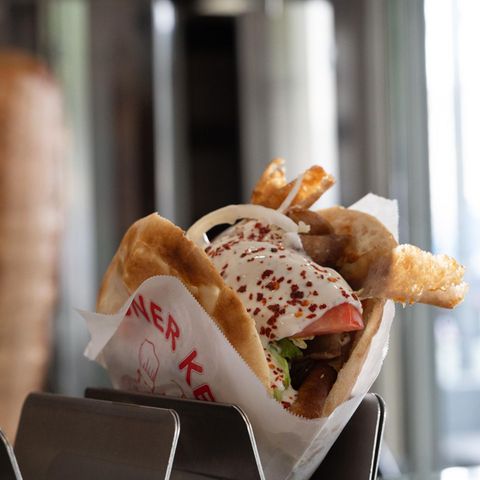Doner production manager
“This is hard work – in the event of permanent cold”
Copy the current link
Add to the memorial list
Muzayfe Doganer is a production manager at the kebab manufacturer Birtat in Murr Württemberg. Dem star He reveals how heavy the kebab skewers are and why his company goes on strike.
He loves his work. You notice that Muzayfe Doganer Already after a minute in conversation. The 47-year-old family man has been working at Birtat, one of the largest kebab producers in Germany since 2011. 115 employees produce 35 to 40 tons of kebab skewers-every day. Calf, beef, chicken.
“I learned the kebab business from scratch, from snacking to manufacture-directly when I followed in 1999 Germany Came, “says Muzayfe Doganer. Proudly swings. Especially since he comes from Adana, near the Eastern Turkish Mediterranean coast.” There is ‘Adana Kebap’, a specialty! “The grill skewers made of minced meat, traditionally combined with beef, with a special, rather sharp seasoning mix belonged to every good Turkish restaurant.
Doner production is “hard, physical work”
Doganer’s working day at Birtat begins around five in the morning. “The first group starts at four – at the entrance to the goods where the meat arrives. With and without bones.” Then it continues in the coolness with disassembly and separate varieties. Then marinate, skewer, pack it and then shock frost. “This is hard, physical work – in the event of a permanent cold,” says Doganer. The skewers can weigh around 100 kilograms, portable only in pairs. Finally, it is picked up and the next day it goes out to customers in fridge trucks. The Birtat assumes that around 13 million kebab lovers are cared for.
Doganer started at Birtat as a kebab “master”. This is how this is called in the scene. Because a recognized training for the activity is missing. Soon he rose to the team leader and finally to the production manager. “You are always on the go. Everything has to run top, sometimes you have to help, always manage the staff well. After all, we work with food.” Perhaps it has been Doganer’s willingness to help, his commitment, which is why his college chose him as the chairman of the works council. As such, he now argues for fair payment at BIRTAT.
“The payment with us goes crisscross. Our women get several hundred euros less a month – for the same work as the men. It is not possible,” says Doganer. The full -time salaries fluctuated between 2300 and 2600 euros per month. Newly employed employees sometimes get more than veteran. “You can’t make kebabs overnight. You have to learn, learn, learn, learn at least a year.” Doganer wants a training course, a “specialist for kebab production”. With a German IHK degree. Then his employer could no longer treat the most in the workforce like trained auxiliary workers.
The Birtat leadership had offered the works council an agreement with salaries, but Doganer and his colleagues did not trust the matter. “We go on strike for a house collective agreement with the union. Then it is properly and fairly.” With the union on the side, he and his colleagues, whipped together, felt more safer from Southeast Europe. “There are experts who have studied, can speak very differently with the leadership.”
Muzayfe Doganer is constantly talking to the leadership. Already qua job and election mandate. As far as the current salary dispute is concerned, it remains optimistic. “You have to talk, come together.” He is satisfied with his own content, although “it is significantly less than for production manager in the meat industry”. He comes to around 50,000 euros annual gross. He lives in Ludwigsburg with his wife and two children, there is chairman of the small animal breeders’ association. His passion is the best possible kebab, made in Germany. Made under fair working conditions.
“Germany is a kebab home. Number one!” Says Muzayfe Doganer. “There are much more kebab here than in Turkey.” In fact, Doner now seems to be attributed to German cuisine as bratwurst. For example, there are around 170 restaurants of the GDK chain, “German Doner Kebab”. From London via New York to the Arabian Peninsula.
Source: Stern





